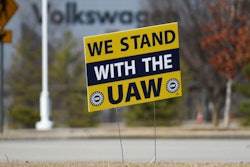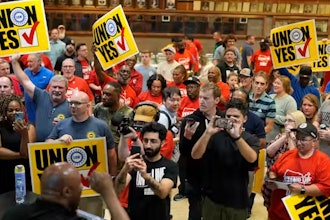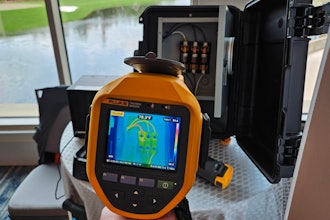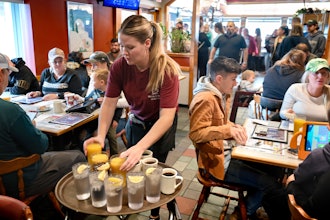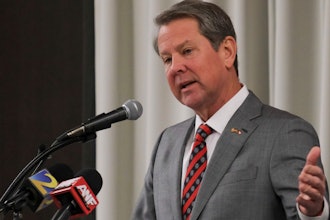HERSHEY, Pa. (AP) -- Three companies have agreed in a settlement to pay more than $213,000 in back wages to hundreds of foreign students for summer jobs they held at a Hershey candy company facility, the U.S. Department of Labor said Wednesday.
The settlement also requires two of the companies to pay fines totaling $148,000.
The Hershey Co., whose sweet treats include Kit Kat and Reese's peanut butter cups, owns the warehouse and distribution center but was not cited for violations because it contracts out the operation of it to another company, Exel Inc., Hershey spokesman Jeff Beckman said.
Westerville, Ohio-based Exel, Lemoyne-based SHS Group and the San Clemente, Calif.-based Council for Educational Travel USA agreed to pay $213,042 in back wages to 1,028 foreign students who held summer jobs repackaging candy for promotional displays. The payout is an average of $207 per student.
The three companies overcharged the students for housing, reducing their wages below what they were supposed to be paid, the department said.
Exel agreed to pay $143,000 in fines for excessive workplace noise at the Hershey facility, about 100 miles northwest of Philadelphia, to implement a noise abatement plan there and to take steps to ensure compliance with federal workplace rules at its more than 300 other facilities across the country, the department said. SHS was fined $5,000 for repeated violations of labor standards, it said.
"The decision of these companies to play by the rules is a positive step that will ensure that workers are treated fairly, as is legally required," said Nancy J. Leppink, deputy administrator for the department's wage and hour division.
Exel said it had agreed to settle "in the interest of resolving this matter amicably." It said its other facilities may see similar noise exposure abatements and record-keeping improvements, part of its "ongoing compliance efforts."
Telephone calls seeking comment from SHS and the Council for Educational Travel USA were not immediately returned Wednesday.
In August 2011, more than 100 foreign students who worked at the facility staged a protest, saying they took the jobs in the belief they would be taking part in a cultural exchange, not working at menial jobs that left them little time or energy to do much else.
One protester, Yana Brenzey, a 19-year-old journalism student from Zaporizhzhya, Ukraine, said she had no idea that she would be lifting 40-pound boxes or netting only about $200 a week. Other students who took part in the protest were from China, Kazakhstan, Moldova, Mongolia, Poland, Romania and Turkey.
With Hershey's support, Exel subsequently decided to end its practice of hiring people who hold J-1 Summer Work Travel visas issued by the U.S. Department of State, Beckman said.
Federal officials conducted inspections after the National Guestworker Alliance advocacy group filed a complaint on the students' behalf.
The alliance's legal director, Jennifer Rosenbaum, said the Hershey protest helped expose how some employers use subcontracting, outsourcing and temporary staffing agencies to undercut federal wage, health and safety standards.




